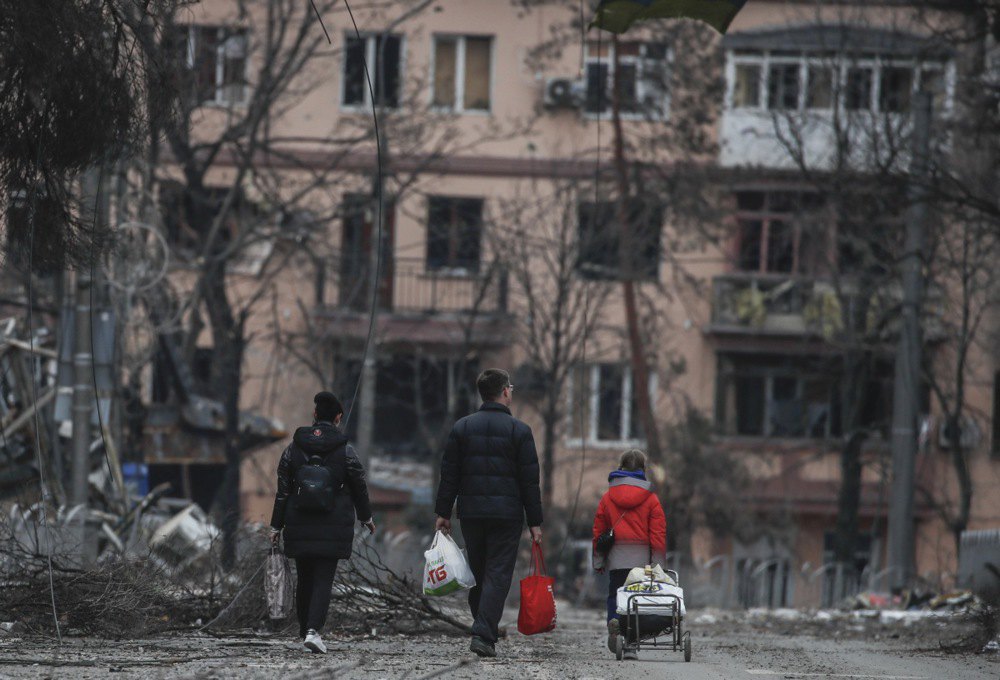
Life from the beginning
It is fortunate that they did not stay long at the Drama Theatre and took the risk of going to their relatives. It is fortunate that their car survived. It is fortunate that they decided to leave, not knowing what awaited them further. Yevheniya, her teenage son and 21-year-old daughter escaped from blockaded Mariupol in mid-March 2022. They stopped in Berdyansk, passed 16 checkpoints to Zaporizhzhya, and were then taken in by relatives of Yevheniya's husband, a soldier, in a village in Vinnytsya Region. That's how the geographical roulette worked out. But at least they knew they had a place to stay for the time being. Three months later, Yevheniya was already looking for an apartment in Vinnytsya. And I was depressed all the time, I let myself go. In the end, we could barely stand each other, even though we tried to hold back. And I had a goal to find a place to live so as not to stress anyone out," she explains.
— However, no one promised that a strange city would immediately welcome them with open arms. When landlords heard that Yevheniya was from Donetsk Region, the rent immediately skyrocketed. She came to see one apartment. Two rooms, worn-out furniture, a bathroom in terrible condition, dishes covered in grease. The landlord asked for 6,000 hryvnya per month, including utilities. But as soon as he heard that Yevheniya was from Mariupol, he immediately responded: ‘Then no less than eight.’ ‘For what?’
— I realised that I would not be able to work with this person because I would simply scratch his eyes out at some point.
In the end, Yevheniya found an apartment with a strategic facility nearby. But after Mariupol, she didn't care: ‘If it's not a direct hit, the chances of survival are 90%.’ When negotiating with the owner, who turned out to be a former military man, Yevheniya immediately decided to dot the i's and cross the t's. ‘We're from Mariupol.’ ‘So what?’ ‘Will the price go up?’ ‘No. I'll even put up with you speaking Russian.’
So Yevheniya and her son found a new shelter (her daughter went further to Germany). For the first two months, they slept on the floor. Even if they bought a bed, what then? Where would they put it? Yevheniya spent a long time looking at the Facebook group “I’ll give it away for free, Vinnytsya”. She was very embarrassed to ask, but in the end she wrote. So they got a carpet to cover the holes in the floor, bed linen, a coffee table, stools, someone gave them a microwave, someone gave them frying pans and pots. Many people responded to Yevheniya's request. Little by little, she furnished the apartment and set up her household. When her husband came home on holiday, he helped her repair some things. Even the wallpaper, which put her in a bad mood, was replaced with the landlord's permission. And in lieu of future payments, she repaired the door to the balcony and the rotten sewer system. They lived in this flat for a year and even got a cat.
All this time, Yevheniya continued to work in the management company of one of the Mariupol enterprises, closing cases. When this stage was over, she registered at the employment centre in Vinnytsya, posted her CV on websites and enrolled in accounting courses at Vinnytsya College, which she was offered to take at the Ya Mariupol support centre.
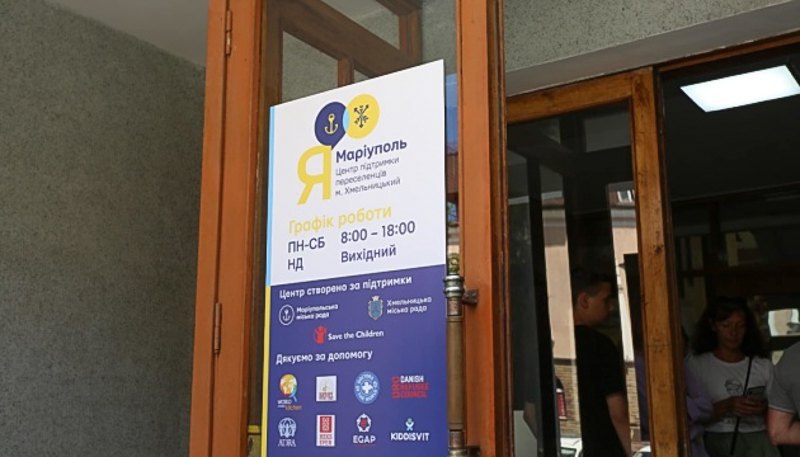
— I was looking for a job, but I don't even know how you can survive on the salaries they were offering. The salary is 10-11 thousand hryvnya, and you pay six thousand for rent. Plus, you have to commute outside the city. My husband joked that it would be cheaper for me not to work, but to stay at home and study.
She did find an attractive offer, but it came at a price — moving to the Lviv Region. Yevheniya hesitated: although there was nothing really keeping her in Vinnytsya, she and her son had finally settled down, and now she would have to uproot herself again. Her husband convinced her to take the risk: “Your life has started over. Wherever you are, I will come, as long as you are happy there.”
Bottle neck
Around the time Yevheniya was sorting out her new job and another apartment hunt was on the horizon, the government launched the eRecovery (єВідновлення) programme. Initially, it provided financial assistance for the repair of homes damaged by hostilities, but only if they were located in unoccupied territory where there was no active fighting. Later, it was extended to include destroyed property, with one exception: temporarily occupied territories were again excluded.
Since then, according to the Ministry of Community and Territorial Development of Ukraine, the State Register of Damaged and Destroyed Property has received almost 62,000 applications for compensation for destroyed homes and about 142,000 for damaged ones (as of early August 2025 — LB.ua). The largest number of applications were submitted by residents of the Kharkiv, Kyiv, Donetsk, Mykolayiv, and Kherson Regions. As a resident of Mariupol, Yevheniya was deprived of this opportunity from the outset.
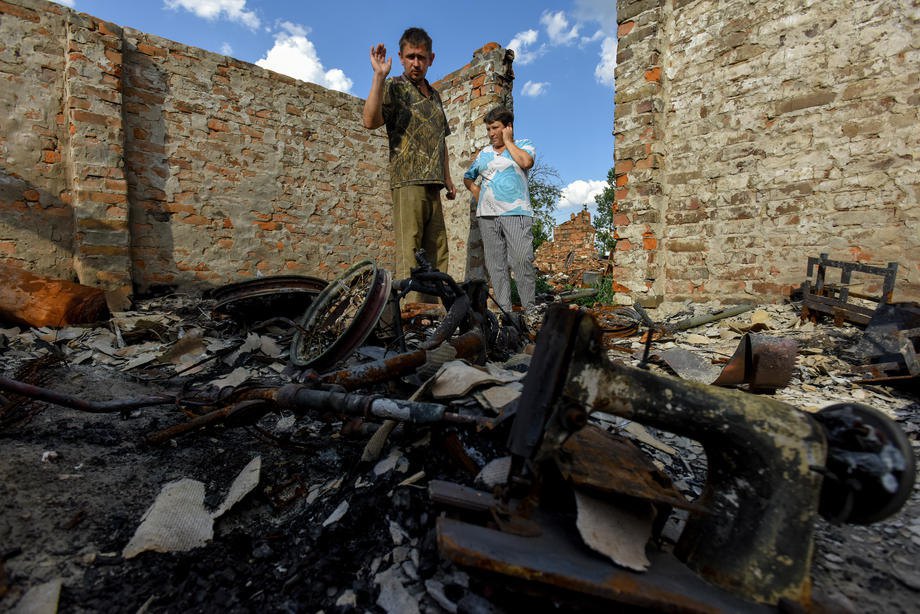
The amount of compensation paid has already exceeded 31 billion hryvnya. It was received by more than 111,000 applicants in the form of a certificate for the purchase of new housing, money for repairs or reconstruction. One way or another, this is only half of all applications. If, for example, we take payments for the repair of damaged housing, the proportion of positive decisions here is quite high — 75%. But with destroyed property, the picture is worse: only in a third of cases did applicants receive approval for compensation. This applies to 18,800 applications. The consideration of another 25,500 applications has been suspended, and in approximately 20% of cases, payment has been refused, according to the Ministry of Development.
They explain that there are three most common reasons for refusing compensation for damaged housing. The apartment is located in a building where common areas have not survived. There is no agreement on compensation from the co-owners of the property. Or the cost of the damage exceeds the maximum amount of compensation (350,000 hryvnia for apartments and 500,000 hryvnya for private houses).
At the same time, the consideration of any application is suspended due to the lack of a complete set of documents. The main reason for negative decisions on compensation for destroyed homes is the inability to inspect and establish the fact of destruction of the home.
In fact, this has become a bottleneck, effectively cutting off those whose homes remain in temporarily occupied territories, and to a large extent those whose homes are in areas of active combat, from the compensation mechanism. Until recently, this problem could not be solved.
— It all starts with an inspection of the home, which gives the green light to the procedure. We have commissions that conduct inspections, but they only work where they can get to,’ says Serhiy Kubrakov, director of the Desna-Stara Huta National Nature Park.
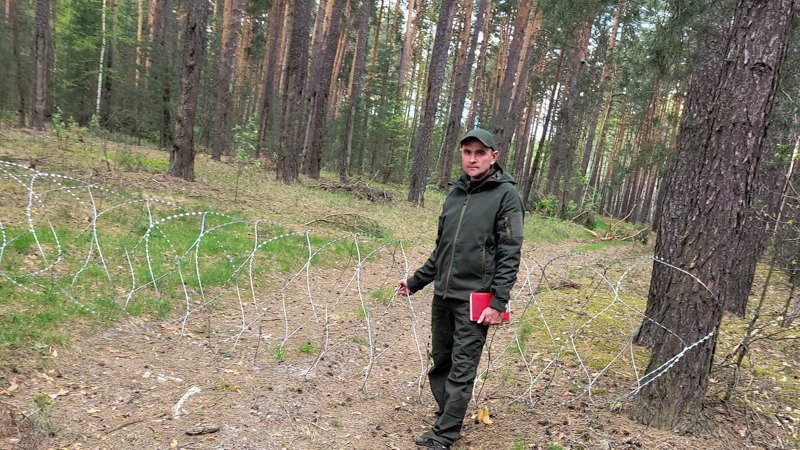
He lost his home last year. His parents' house burned down, as did two-thirds of the houses in Stara Huta, in the Sumy Region.
— "The Russians deliberately target houses with FPV drones until they catch fire. People try to put out the fire, but the shelling continues. So they have to drop their buckets and run to the basements. In our village, entire streets burned for two or three weeks, and no one was able to extinguish the fire," he says.
Serhiy has not even begun the process of obtaining compensation for his destroyed home. Stara Huta, like most villages along the border with Russia, is inaccessible not only to the commission.
— "The centre of our community is Seredyna Buda. The commission is located in the city. And if something flies in there, it's easier: you cross from one street to another, take a photo, record it. Of course, it's dangerous because Seredyna Buda is under fire. But at least there is a possibility. And you have to travel 30 km to Stara Huta. Ten kilometres will be in the FPV operating zone, and the remaining 20 km — at any moment, shelling can begin from anywhere, artillery, mortars, Grads, planes, helicopters. Everything is flying. To go and photograph the ashes, knowing that you may not return? My decision is not to do that, he explains.
Serhiy sent his family to western Ukraine at the beginning of the full-scale invasion. He now lives in his other house in Seredyna Buda. It has been hit twice. The windows and roof have been damaged by mortar fire, but the building is still standing.
— “There’s no point in applying for money for repairs because of the constant shelling. So I’m just waiting for the war to end,” he says.
Andriy Hrudkin, who heads the public association Coalition ’On the Frontline', says that in his native Toretsk, the commissions did not even begin to work when it was still theoretically possible, citing security concerns.

— We cannot say how objective he was. We cannot take on such responsibility and make conditional claims to the authorities: you organised community clean-ups in the city, but did not go to inspect the property. At the same time, I know that, for example, after the de-occupation, the Svyatohirsk community drew up inspection reports for all destroyed buildings, because the head of the city military administration insisted on it. And now the situation is such that the commissions in the east are practically not working anywhere, because the front line has moved too far forward," he says.
Another move
Once in Lviv Region, Yevheniya, who had successfully passed the interview, was again looking for a flat to rent. The situation was greatly complicated by her cat.
"In fact, we could only count on a private house. Cats are not welcome in flats. But there were almost no offers for houses. And even prices for one-room flats started at 8,000 hryvnyas.
So when Yevheniya came across an advertisement for a Finnish house to rent in a small village, she immediately jumped at the chance. The house looked as if it had never been renovated. But Yevheniya, who was temporarily living with friends in Sokal and had been commuting 85 km to work for two weeks, was so exhausted that she was willing to accept anything.
The house had previously been rented out to builders, so the rooms were cluttered with sofas. After spending the night on one of them, Yevheniya woke up covered in red marks from bedbugs. The walls were hung with carpets that reeked of cigarette smoke. She tore them down, washed the walls with bleach, and put up wallpaper. She bought beds that were used in hotel rooms for business travellers at the company where she worked and were about to be discarded. She refurbished the house as best she could. At first, she paid 4,000 hryvnyas per month for rent, including utilities, then 5,000, plus 3,000 hryvnyas in winter for heating.
When Yevheniya left there last autumn and went to the Administrative Services Centre to change her place of registration, they accidentally found out that the landlords were also receiving compensation for utilities based on copies of her IDP certificates.
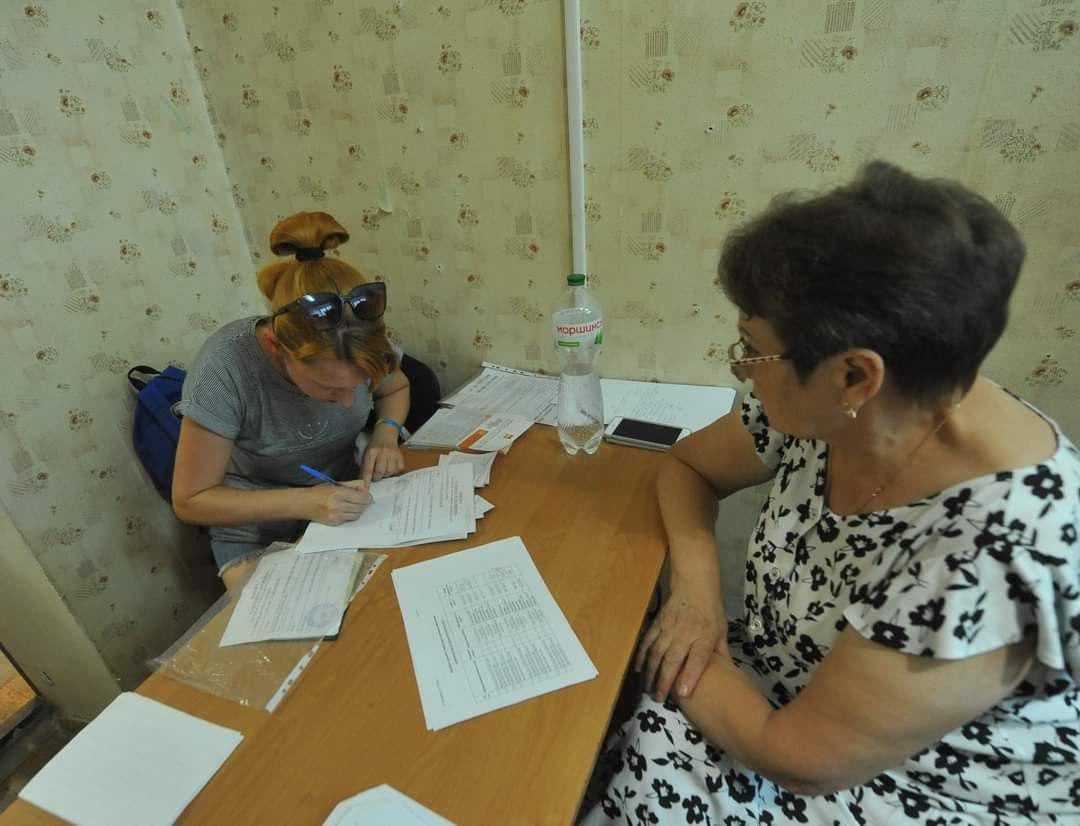
— Where is the justice? I have had a legal salary all my life and paid taxes. When times got tough, the state told me, ‘You earn too much, we will take away your IDP benefits.’ Fine, give me and my minor child compensation for our lost home. But again, no. And the state doesn't care at all where my child lives or in what conditions. If only someone would come and see. And then there's this deception.
Remote inspection
After the Melitopol experiment, there was some hope that the compensation mechanism, which was blocked for residents of the temporarily occupied territories and combat zones due to the inability to inspect their homes, would be unblocked. It lasted from 14 November 2023 to 14 February 2024. Its purpose was to establish the facts of the destruction of immovable property in Melitopol remotely — by comparing satellite images from the period before and after the start of the full-scale invasion.
During the analysis of nearly 34,000 properties, 55 destroyed buildings, 72 damaged buildings, and 18 buildings requiring further investigation due to the poor quality of the images obtained were identified. Ultimately, the commission established that two residential buildings had been destroyed. It suspended the investigation of two more buildings because it was unable to determine with certainty whether they had been destroyed.
The conclusions of the experiment clearly stated that it is possible to introduce surveys of destroyed or damaged real estate objects, in particular using remote sensing information products in communities located in areas of active combat operations and under temporary occupation.
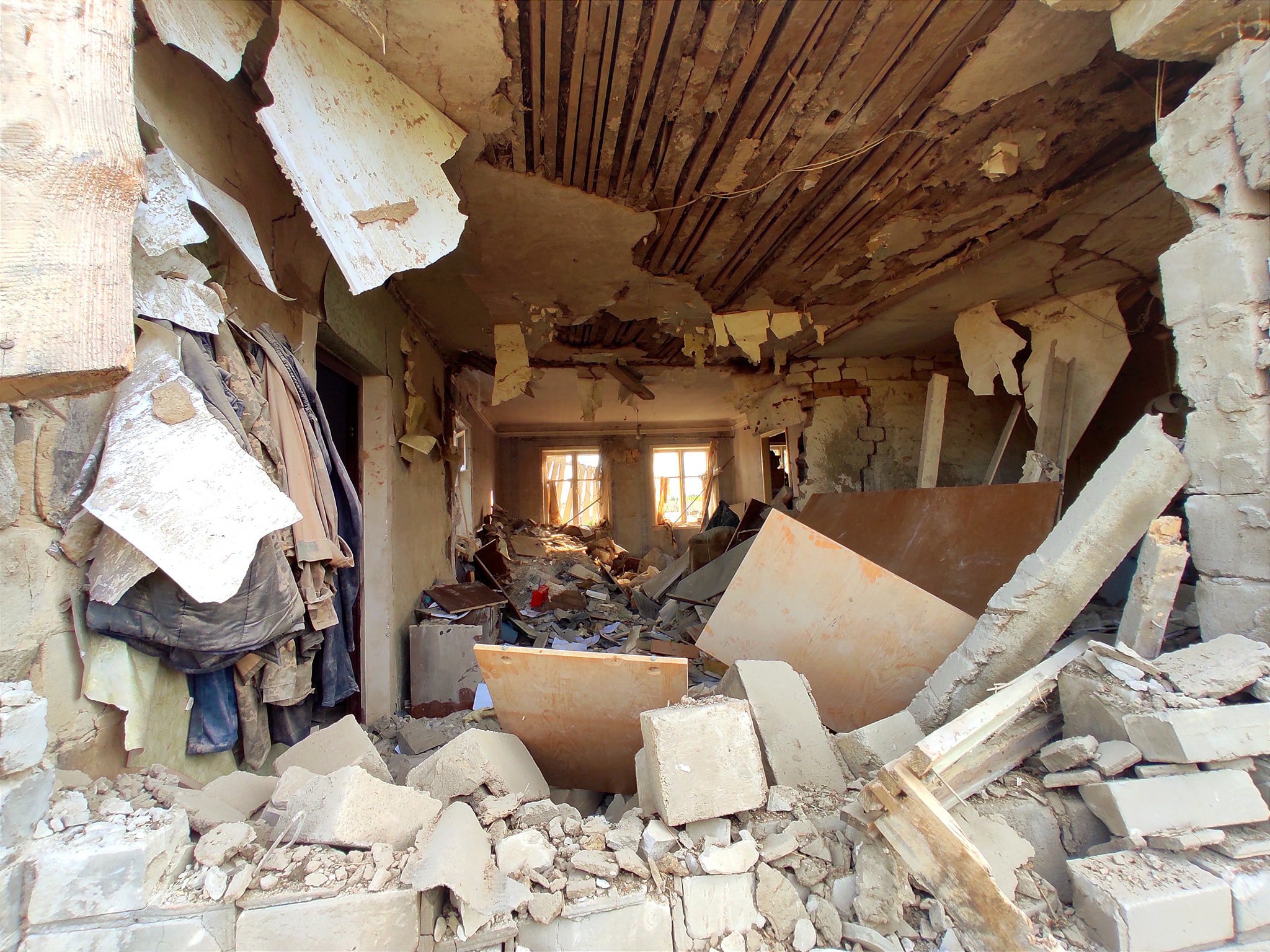
“We immediately wondered why the Melitopol experiment couldn’t be extended to other cities. After all, there was so much talk about what a great tool it was,” says Andriy Hrudkin. “Why not conduct centralised satellite screening and establish certain facts remotely? But instead, we got Resolution 815, which really triggered us.
This document appeared in July 2025 and did indeed allow remote inspection of housing using photos and videos obtained with digital and video cameras, UAVs, as well as materials and data from aerial and space photography. However, firstly, this tool was unexpectedly introduced for combat zones (and is now being extended to areas of potential combat). Temporarily occupied territories were once again left out.
Secondly, the rather strict requirements for images caused outrage. For example, photos must be colour, clear and without defects, and must contain the date and time of shooting and geolocation. At a minimum, photographs of the general appearance of the land plot, a general view of the house itself, and at least three other angles confirming the fact of destruction must be provided. Moreover, if possible, the photograph should contain some identifying features — address plates, house numbers, signs, the surrounding area, and other landmarks. Many people perceived this as a mockery.
It's very funny, considering that the photos are supposed to be taken by the person who has to walk around the frontline territories and count whether they have set the number of pixels correctly. Well, I can imagine how some Larysa Vasylivna called a meeting and said: ‘Girls, let's quickly gather a drone group and survey the houses.’ Of course, all this provokes sarcasm and irony. In other words, the resolution itself does not provide any understanding of how to implement it. Most likely, it’s unworkable nonsense, and now the authorities are in a kind of zugzwang — they have to invent recommendations for the commissions, because people will keep pressing them, and the commissions must somehow respond.
We asked the Ministry of Development what instructions it had given to the commissions regarding the implementation of remote surveys. In response, we were told that the ministry had held a series of meetings with regional military administrations, involving representatives of the Ministry of Defence and the State Geocadastre, as well as members of the commissions, where they discussed the mechanism for implementing the adopted resolution.
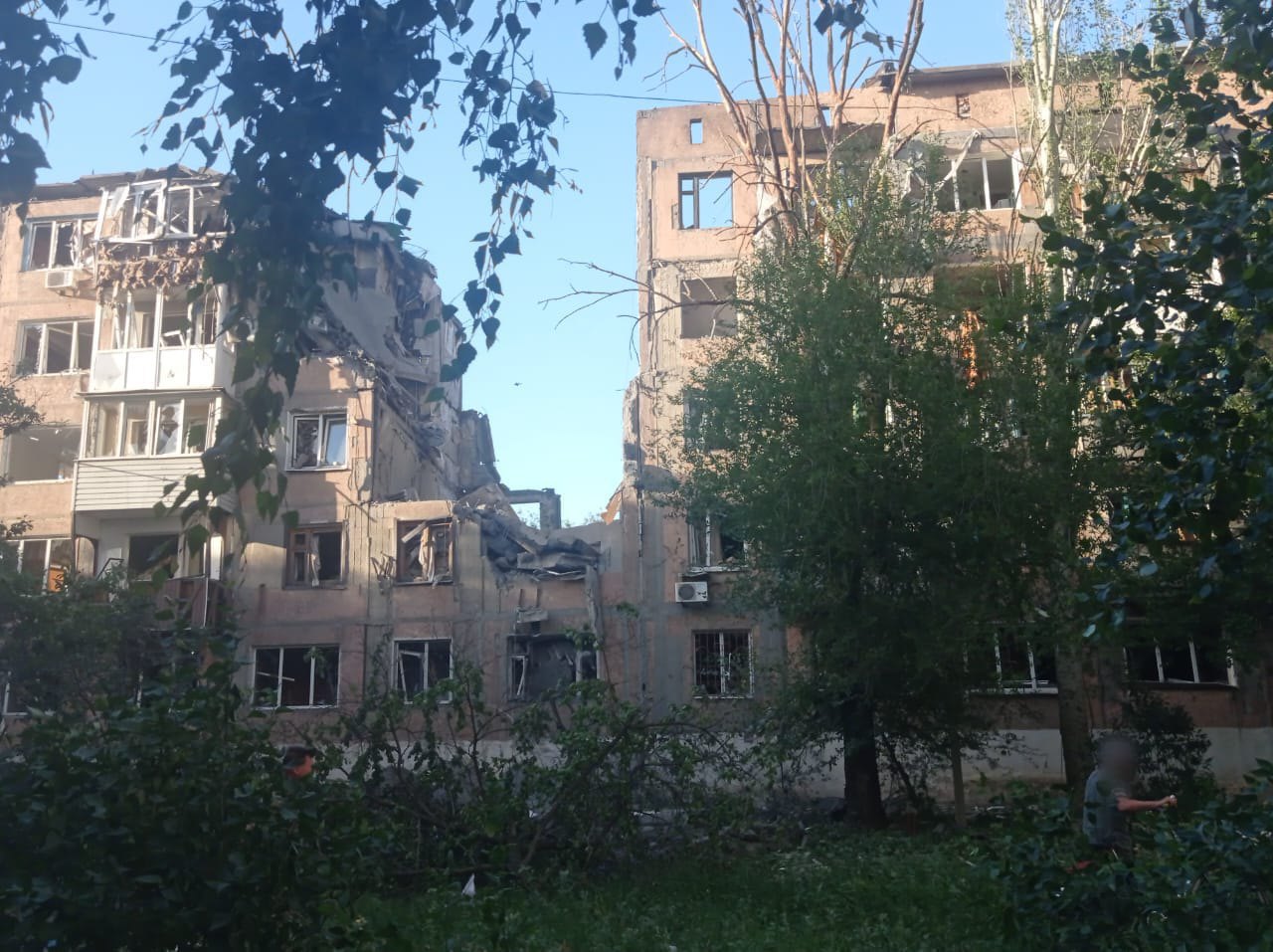
Meanwhile, the Toretsk City Military Administration sent a request to the Ministry of Defence and the State Geocadastre for remote sensing images of the Earth. In response, the State Geocadastre said it didn't have any such stuff. And the Ministry of Defence said it couldn't give them out because this info is classified and can't be made public.
This raises the following question: why not simply declare certain settlements uninhabitable? We are from these cities, we see all these photos and videos from drones, what they have turned into — Bakhmut, Toretsk, Avdiyivka, Maryinka, Krasnohorivka, etc. And it is obvious to us that it is impossible to live there. So why complicate things? — says Andriy Hrudkin.
There have been some attempts to resolve this. In December 2024, a law was passed in its second reading that introduces relevant amendments to the law on compensation. It proposed to consider real estate objects that cannot be inspected because they are located in communities in areas of combat operations or under temporary occupation as destroyed. Instead, people would have to transfer ownership of these properties to the state. Since then, the law has been awaiting the president's signature.
"I think they were afraid that people would get their certificates and rush to storm the Verkhovna Rada and the Cabinet of Ministers to demand the money they are missing. Their systemic mistake is that they just made it up. But ignoring this issue only makes things worse,‘ says Andriy Hrudkin. ’If you are afraid of abuse, then develop a verification system. You can always come up with something. Because this injustice is so blatant and obvious that the level of betrayal on any scale is sky-high. When money is given for housing restoration to a person from Bucha or someone in the Zhytomyr Region who has been displaced, why not give it to a person who is now physically unable to restore anything because they have lost their native land, their home, and are wandering around in host communities? We can talk a lot about integration, about all these soft components. But the issue of housing is existential for a person. And no one can convince anyone that it is anything else.
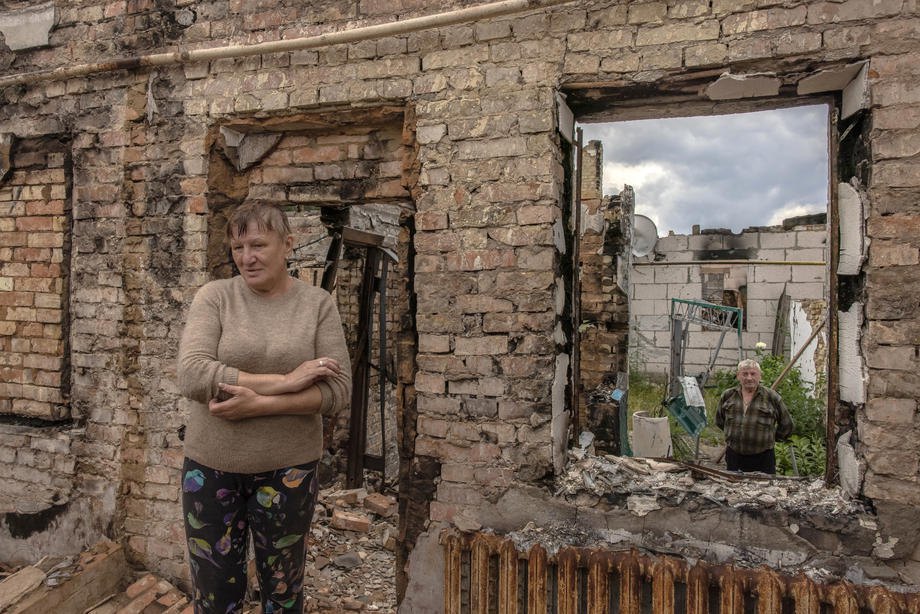
While we were putting together this material, Minister of Community and Territorial Development Oleksiy Kuleba announced the launch of a separate instrument that should open up the possibility of compensation for internally displaced persons whose homes remain in temporarily occupied territories. It is expected that this will be a housing certificate worth up to UAH 2 million for the purchase of a new home or as a down payment on a mortgage, or to pay off mortgage obligations. Initially, the programme will prioritise combatants and people with disabilities. Funding of $180 million from international partners has already been confirmed. Thanks to this, approximately 3,700 families will be able to receive the first payments. The technical details of the programme are still being finalised, so it will start in two months.
Property rights
A shell hit Serhiy Lymanskyy's house in Ozerne, Donetsk Region, on his birthday, 28 April 2022. Serhiy was turning 60 that day. The night before, he had spent the whole night hiding in the cellar because of the shelling. When it quieted down a bit in the morning, he went into the house, but almost immediately had to rush back. As soon as he jumped into the shelter and began to close the door behind him, he heard a loud explosion — the house had been hit. He spent another day in the cellar and eventually left his native village with the Ukrainian military so as not to end up under occupation. He then moved around Ukraine like a tumbleweed. He stayed in the Ternopil Region for several months, then moved to Cherkasy, to Khyzhyntsi, to his son and his family, who had also lost their home in Lyman. Soon, they all had to move again. That is how they ended up in Dzenzelivka. But they did not stay there long either, moving to the Kramatorsk district. The air raids began. The next move was already their fifth. Now Serhiy and his family rent a house in the suburbs of Svitlovodsk.
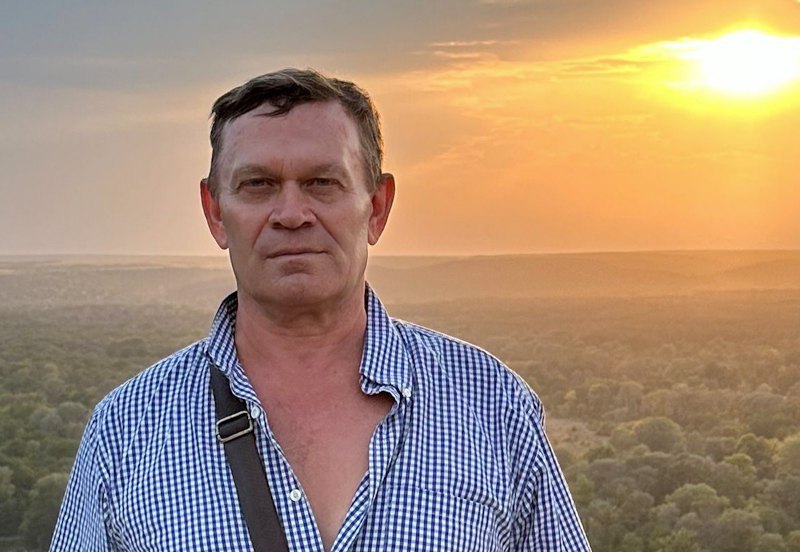
Back in 2023, he and his wife tried to address the issue of compensation. They travelled to Lyman to personally submit the relevant applications for the houses in Ozerne and Lyman, one of which was registered to Serhiy and the other to his wife. The Administrative Services Centre accepted the applications and asked if they wanted the commission to inspect the houses without them.
“We wanted to be present. They promised to contact us within a week. We were delighted: ‘Thank God, the main thing is that we will have the document,’” says Serhiy. “A week, two, three passed — silence. We started calling them ourselves, and on the other end of the line we heard: ‘Call back tomorrow,’ ‘Call this number,’ ‘Why are you bothering me? Don’t you know there’s shooting going on there?’ At the same time, locals told me that some commission was going around inspecting houses. Then they stopped answering our calls altogether. That was the end of it.
At the same time, Serhiy tried to register his house in the State Register of Real Rights to Immovable Property. On advice, he found a company in Kramatorsk that promised to provide such a service. Then they found a mistake in the documents — during privatisation, instead of a house, they had written “apartment” in the technical passport. The company promised to fix everything. However, progress was very slow. At some point, Serhiy gave up.
‘Of course, that's no excuse. It's just that my brain couldn't take it anymore, I was tired,’ he says. "I thought, go to hell. No one explains anything, everyone just sends you somewhere else. They take your money and don't help you with anything. My son was wounded in Bakhmut while defending his homeland, he almost lost his leg, and we went from hospital to hospital. It was all so stressful that I thought: he comes first. And whatever happens with the house, happens.
Problems with documents or their loss often become an obstacle to receiving compensation. And the State Register of Real Rights to Immovable Property is another bottleneck. Because currently, the entire procedure is geared towards registering ownership rights in it.
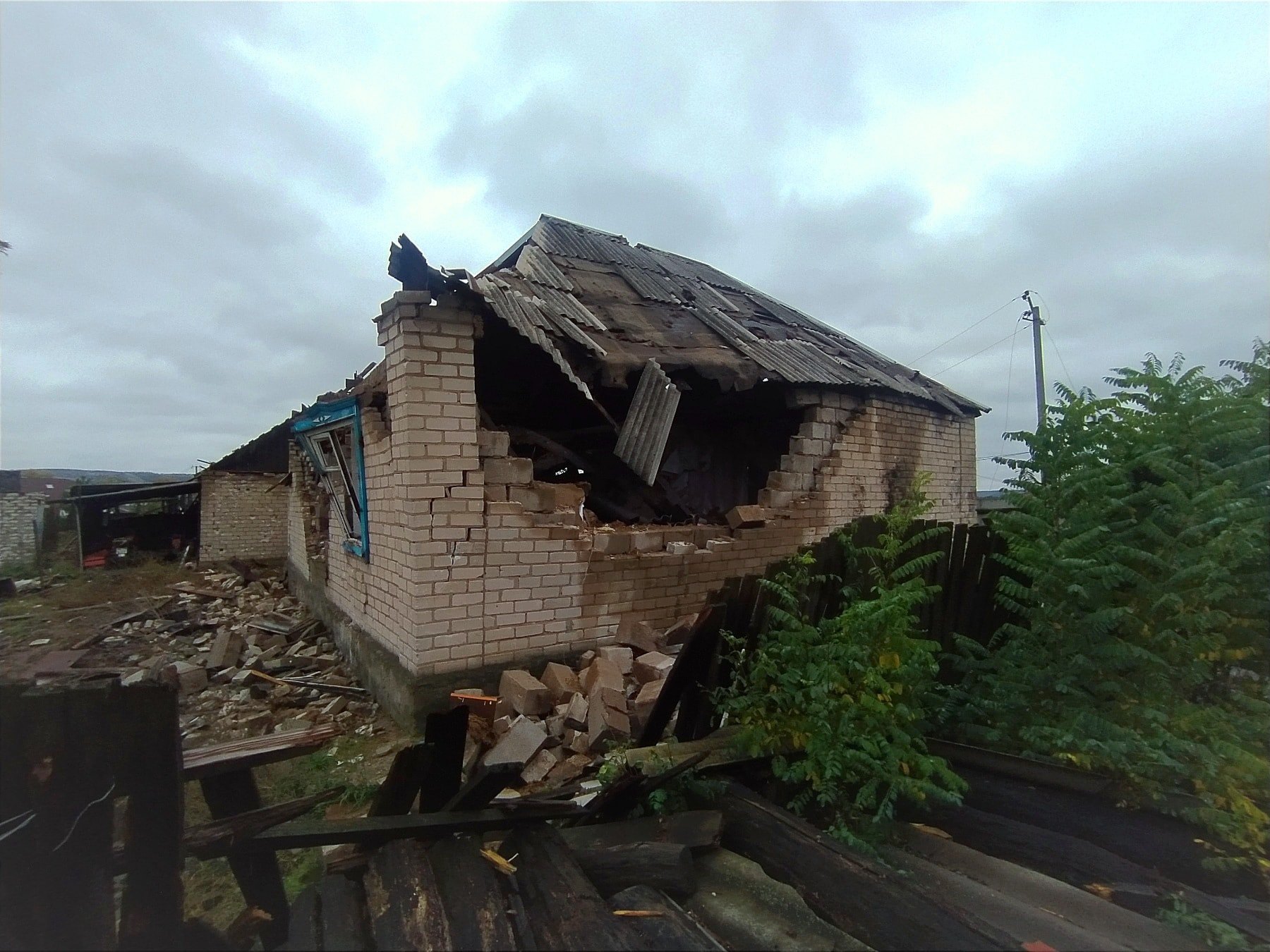
— And it really isn't complete. In the spring, experts who studied the issue of the completeness of this register announced that there are about 9.6 million unverified homeowners in Ukraine. These are people who have not registered their property rights in the register, and without this, it is impossible to receive compensation. Therefore, the general recommendation for everyone who acquired ownership of housing before 2013, when the register began operating, and has the relevant title documents, is to enter information about their ownership rights in the State Register of Real Rights to Immovable Property right now, says Anastasiya Burau, who heads the advocacy department for the protection of housing, property and land rights at the Right to Protection Charitable Foundation.
The situation is further complicated if the paper documents confirming ownership of the property have been destroyed. This leads to a whole series of new challenges related to restoring and obtaining duplicates. Or obtaining certain documents from the Bureau of Technical Inventory.
— The BTI archives should be digitised, and the state is moving in this direction, but unfortunately not as quickly as necessary. Non-digitised paper archives may be destroyed or may not be accessible. In such a situation, obtaining information from the BTI necessary to confirm ownership rights becomes significantly more difficult. In the context of obtaining compensation for damaged and destroyed housing, this complex of issues requires changes and refinements, including simplifying the administrative procedure for entering information into the State Register of Real Rights to Immovable Property regarding such objects, as well as simplifying the judicial procedure for recognising ownership rights, in particular by exempting applicants from paying court fees, Anastasiya Burau explains.
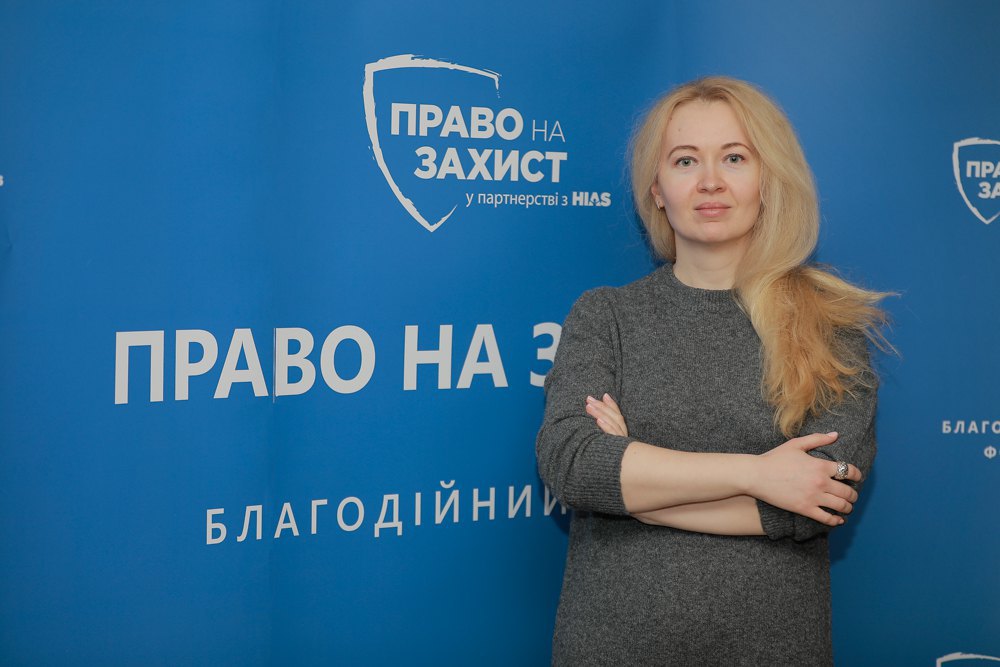
Yevheniya also tried to at least register her Mariupol apartment in the state register, since she cannot currently claim compensation for her lost home.
Yevheniya's mother bought the flat for her, saving up money specifically for this purpose. Since her daughter was already married at the time, she registered the property in her own name, just in case. Yevheniya realised that this was the right decision when she got divorced. During the division of property, her husband even tore the wallpaper off the walls. After the divorce, they tried to re-register the flat in Yevheniya's name. But since her minor children were registered there, the state authorities required their father's permission. He did not want to sign anything. Therefore, this issue remained unresolved.
"When I came to the Administrative Services Centre, they just laughed at me. I said, “You understand, I'm not claiming compensation, I just want this flat to appear in the register. I have the original documents, I am the daughter of the owner, I am registered there”. And they said, “You need a power of attorney from your mother”. My mother stayed there, in a village near Mariupol. To get a power of attorney, she would have to travel across Russia to the border with Europe. She can't do that; my mother can barely walk. The response was, ‘We can't help you.’ And there are so many situations like this, where there are problems with documents, or they have simply been destroyed.
Anastasiya Burau, who researched how effectively the compensation mechanism created in 2023 works and what its current results are, says that in addition to the systemic problems described with victims' access to it, there are many others.
For example, the same limits set on the amount of compensation for repairing an apartment or house. If it turns out that the restoration requires more funds than the regulatory threshold, there is no prescribed procedure for such cases. And they are not uncommon. The only way out of the situation is to look for other sources of co-financing and show them to the commission that decides on the compensation. However, there is no clarification from the competent authorities as to what would constitute proof of the existence of such sources. From 1 January 2024, it will also be theoretically possible to claim compensation for repairs to damaged housing that have already been carried out at one's own expense. But in practice, the mechanism does not work.
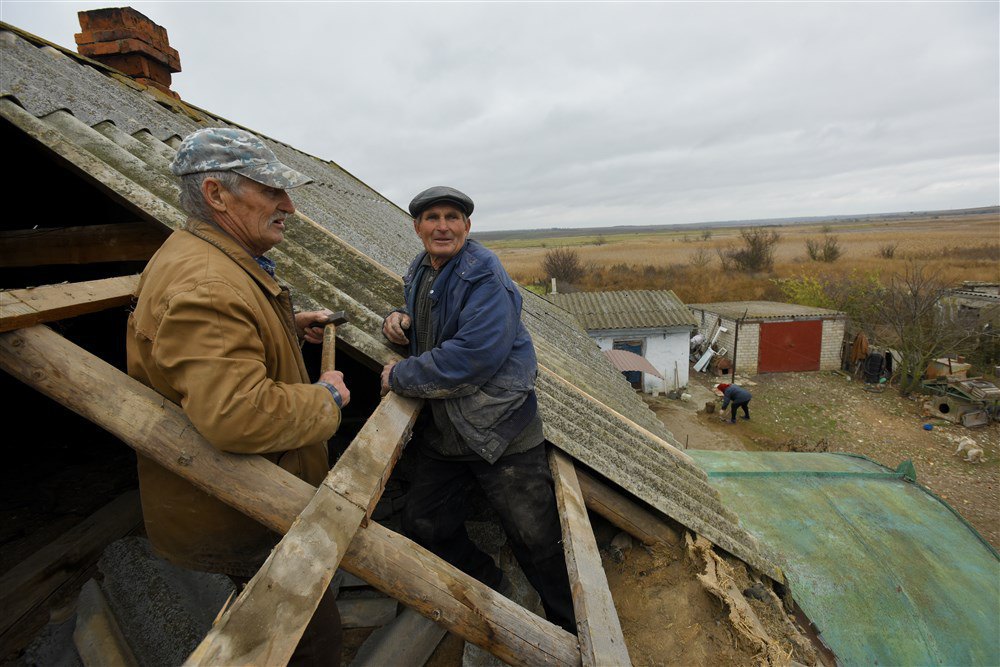
Even if a person manages to obtain compensation, other difficulties arise at this stage. For example, in the case of damaged property, funds for minor repairs (category A) must be used within one year of being provided. Any money that is not used in time will have to be returned. This is despite the fact that there are problems with finding contractors, for example, and when there is a large amount of damage, there is a queue for them.
On top of that, improving the compensation mechanism requires systematisation of efforts, says Anastasiya Burau.
‘We currently have many different draft laws, ideas and initiatives, which are sometimes inconsistent with each other. This is also one of the complex problems,’ she admits.
eApartment
Without waiting for assistance in the form of compensation, Yevheniya and her husband decided to consider the option of a state mortgage for eHouse housing. As a military serviceman, her husband was eligible for a preferential rate of 3% per annum. The loan amount they agreed upon was 2 million hryvnyas. The search for housing began.
At that time, according to the terms of the programme, the flat had to be no more than 10 years old. But anything newer cost from $70,000. How did people get out of this situation? They wrote down the amount of 2 million hryvnias in the documents and gave the difference to the sellers in cash. I didn't have that kind of money. Especially since the down payment was 20% of the cost of the property.
Even if they found an apartment that met the criteria, the owners didn't want to get involved with a mortgage.
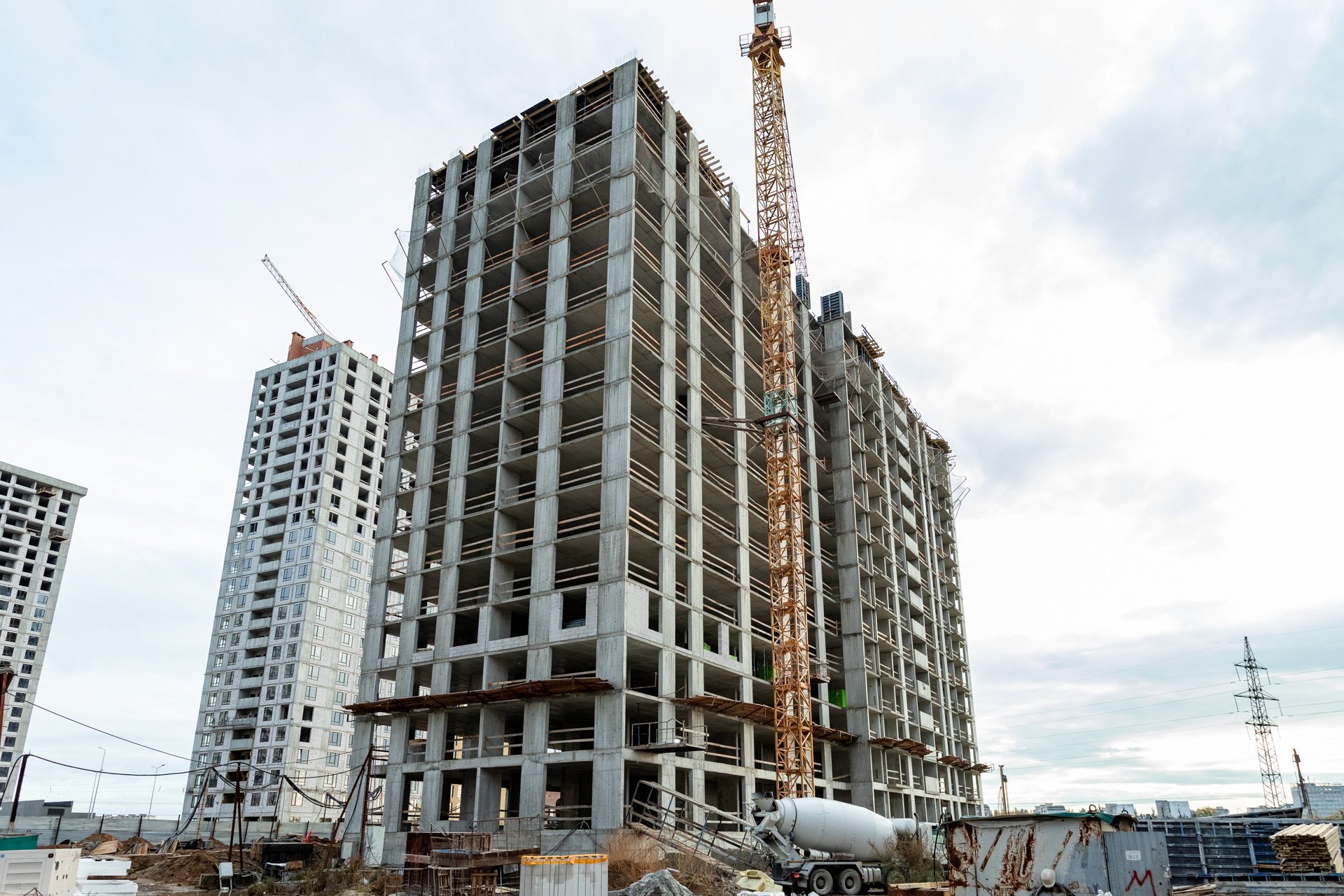
— The state transfers the money to the seller's account. But the seller wants dollars, not hryvnia. So they withdraw the money, transfer it to other accounts, and exchange it. The buyer has to compensate for the exchange rate difference. This money also has to come from somewhere, — explains Yevheniya. — With a 7% loan, it's even tougher. For example, the flat must be no more than three years old. And even if you buy property at zero cycle, where do you get the money for further repairs? When I started to figure all this out, I fell into such a depression that even my boss intervened. He offered help from a renovation company as a charitable gesture. But no matter how I calculated it, and I'm an economist, it turned out that I would have to spend all my income over the next 20 years to pay off the loan. And I'm a rational person. I just wanted a place to live and still have money left over for my children and for holidays. It turns out that the state did everything to make it impossible to afford a mortgage. I say this as a person who, in principle, has a normal income. It is easier to find a $20,000 loan and buy something cheaper.
Then Yevheniya approached her management with a counterproposal: I don't want charity, give me a loan in addition to my savings. Surprisingly, her employer agreed, and on very favourable terms.
"I told my boss: “Give me a repayment term so that I don't have to pay interest. And also, so that it's not tied to the exchange rate”. He laughed: “Everyone wants to avoid paying interest and not be tied to the exchange rate”. I replied, “Everyone wants that, and I want it even more.” Seriously, though, I am very grateful to him. The company treated me with respect and understanding because we had lost our home. And they saw my periodic bouts of despair.
It has been a year since Yevheniya became a homeowner. She bought an apartment for $21,000 and has to repay her employer within five years. Her story has a happy ending. However, this is rather an exception.
Even the 111,000 applicants who did receive compensation from the state in one form or another are a drop in the ocean. According to the current RFNA4 assessment (Rapid Assessment of Damage and Recovery Needs), 13% of the total housing stock in Ukraine has been destroyed or damaged, affecting more than 2.5 million households. According to the calculations of the Ministry of Development itself, as of today, 75,000 internally displaced persons will be eligible for housing assistance each year, and this is only from the temporarily occupied territories.








